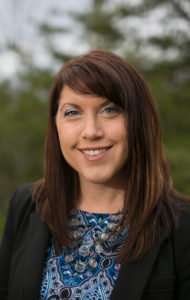 When Ashton Clemmons decided to run for office, she knew she’d be adding one more thing to her already full plate. In truth, she didn’t seek out the office, the office sought her after a long record of community leadership in the Greensboro area school systems.
When Ashton Clemmons decided to run for office, she knew she’d be adding one more thing to her already full plate. In truth, she didn’t seek out the office, the office sought her after a long record of community leadership in the Greensboro area school systems.
“I talked to my husband about running, and he said, well it may not be the most convenient time, but I don’t know how often opportunities like this come along,” and he encouraged her to run.
As Assistant Superintendent of the Thomasville City Schools, Clemmons was juggling already long workdays, while caring for her three young children, which include 3 year old twin boys.
Running as a Democrat, Clemmons unseated a long history of Republican representation when she won the seat last November. Deciding to leave her full time job in education in the final months of the campaign, the memories of her own challenges with paid leave and those of others weren’t forgotten.
“When I had my twins, I never took a day off work before they were born,” she shared.
Clemmons told me towards the end of her pregnancy it was painful to walk, so she wheeled around the school in an office chair, in order to save her paid days to enjoy her boys and recover from carrying twins.
“I had 100 sick days when I gave birth to the twins, but I could only use 40 of those for paid leave,” she said.
The reason she could only use a portion of her accrued sick time at the time of her maternity leave was due to the current structure of paid leave in North Carolina.
The ink was barely dry on her new business cards before she tried to change that structure by introducing the KinCare Act earlier this year. “It would have allowed people to use accrued sick leave to take care of their dependent children or parents, family members or to use that accrued leave for domestic violence proceedings,” Clemmons explained. She emphasized the time would have been the leave time people had already earned with their current employer.
Representative Clemmons speaks of the legislation in the past tense because it’s currently stalled. She’s very transparent about the legislation’s story. “I met with several Republican women (lawmakers) and several would not co-sponsor,” she recalls.
She finally found a co-sponsor – Representative Holly Grange – a Republican from Wilmington. Representative Grange’s stipulation was that the paid leave could only be used for up to five days.
“I agreed to do that and it was given a hearing in State and Local Government Committee, and we had unanimous support from Republican and Democratic lawmakers,” she said. “Then it was referred to Rules (Committee) and it just sat and sat and sat,”
Eventually Clemmons was told in an email, ”leadership has decided this would not move forward.” She is still disappointed.
“This is leave they’ve already accrued, already earned. I got bipartisan sponsorship, and compromised and still none of that was good enough. There is not a commitment from the leadership of the North Carolina General Assembly to support families in my opinion and that’s a prime example to me – that even when you’re trying to take a step forward, the leadership squashes it,” she told me candidly.
Clemmons is also aware of fellow Representative Graig Meyer’s paid leave legislation that didn’t even make it out of committee this year.
“His bill is actually what should be happening, and there’s a plan for how it would be paid for. That bill got no Republican co-sponsors — and nothing is happening without that in this State Assembly.”
Representative Meyer’s proposal would have used a system similar to that used in many of the nine states who have already passed paid leave. People and employers pay a small portion (less than five dollars a paycheck) into a state managed fund, that is drawn from like unemployment.
Even before she won the seat, Clemmons’ story and candid demeanor caught the attention of a popular podcast – The Doubleshift, which featured her in early 2018. In each episode, creator Katherine Goldstein focuses on the various experiences of working mothers.
“We don’t focus on parents or kids – but instead our focus is on the socio-economic public policy issues, the gender roles and gender equality challenges that we face,” Goldstein shared.
“In America, we are left on our own to figure out everything – in terms of what it’s going to take to raise children and survive economically.” Goldstein goes on to compare American attitudes to practices in other countries around the world, particularly in Western Europe, where societies’ collective “obligation” to families extends beyond just basic public education.
“You’re at the mercy of your employees – it creates a two-tier system – and you’re at the mercy of your employer,” Goldstein adds.
During our interview, we also spoke about the fact that this isn’t just mothers caring for babies that need access to paid leave. I shared the stories of three of my close friends who now find themselves choosing between providing for their family, and caring for a direly ill loved one or their own terminal illness. Goldstein agreed and said, “There’s a time, even if you don’t have children, paid family leave is needed.”
The lack of universal leave is also having a disproportionate impact on people in minimum wage jobs and people of color. Goldstein went on to say, “Those are the people who live on the financial edge and have the most to lose. They’re the closest to a financial catastrophe and that’s why paid family leave can make a difference between losing the house – or not paying the light bill – it’s forcing them to live on the edge.”
Stephanie Carson is an Emmy-award winning producer based in Asheville with 20 years of experience in television, radio and print.


There are no comments
Add yours